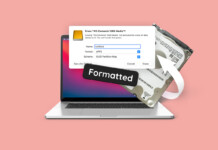 Recuva is a data recovery tool used to restore lost or deleted data. It’s totally understandable why many users prefer this application: it’s easy to navigate, fast, and can effectively retrieve various file formats. But since it was designed specifically for Windows-based computers, there is no Recuva for Mac version available.
Recuva is a data recovery tool used to restore lost or deleted data. It’s totally understandable why many users prefer this application: it’s easy to navigate, fast, and can effectively retrieve various file formats. But since it was designed specifically for Windows-based computers, there is no Recuva for Mac version available.
So which tool should you choose for recovering files from a Mac? Let’s go through the best Recuva alternatives.
What is Recuva and What Does It Do?
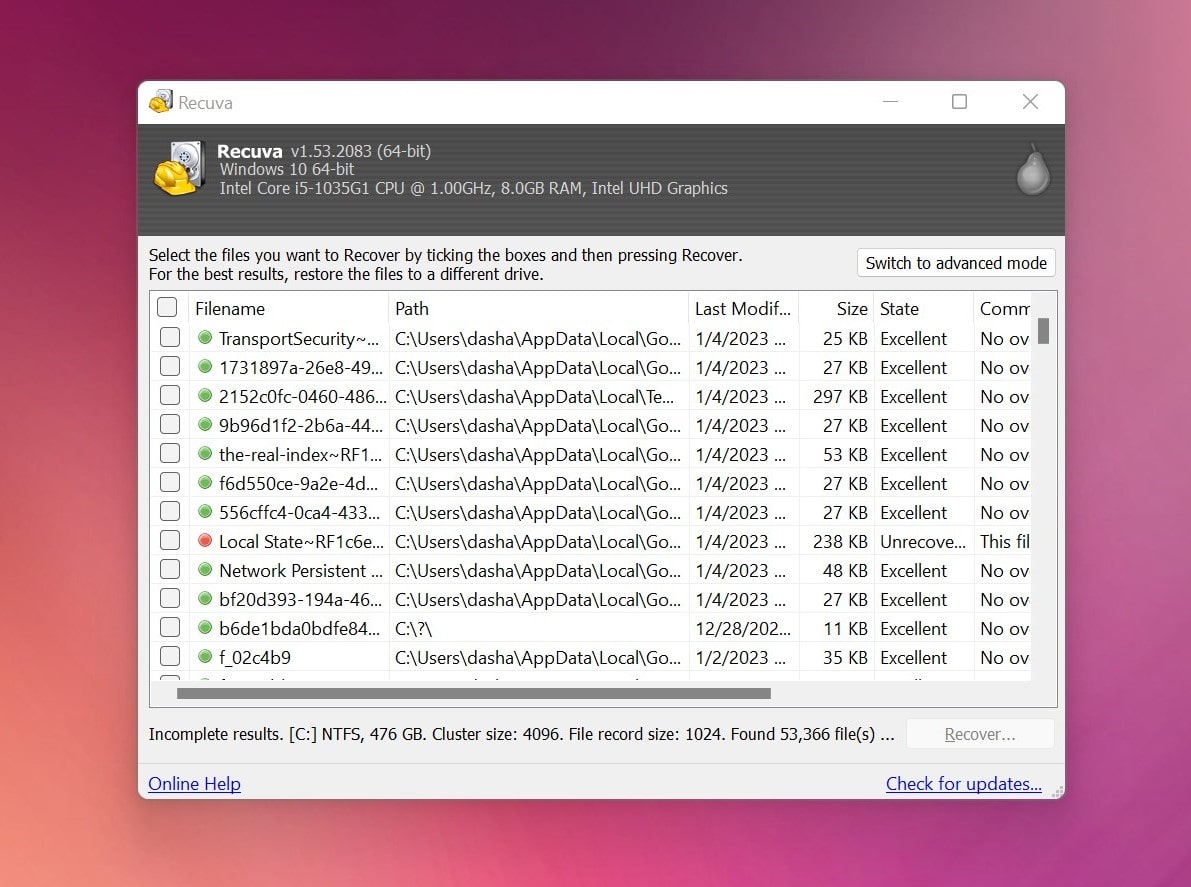
Recuva is a specialized data recovery program created exclusively for Windows PC. Over the years, it has established itself as a quick and simple solution for restoring deleted, corrupted, or missing files. The tool is capable of recovering most file types and offers both standard scanning and deep scanning features.
There are two versions of the software: free and a paid professional one. It’s great to have these options since it allows you to test out the program and make up your mind on whether it’s worth it before actually paying for it. Also, there is a big difference between Recuva free and professional since the latter has higher chances of a successful recovery.
It’s understandable why many choose Recuva when it comes to retrieving lost data, but still, this tool has a few drawbacks:
- No macOS version
- Isn’t suitable for more complex data loss scenarios
- Recovered files don’t have original names.
Top 7 Recuva Alternatives for Mac
Here are the best 7 Recuva alternatives that can be used on any Mac for recovering missing files.
| Name of the tool | Characteristics |
| Disk Drill | Good tool with modern UI for both Windows and Mac users. |
| DMDE | Has a lot of features in addition to data recovery. |
| R-Studio | Powerful tool with awesome capabilities but an unfriendly user experience. |
| TestDisk/PhotoRec | Command-line application with a wide range of supported file systems. Has a separate tool for data recovery on different OSs. |
| Stellar Data Recovery | Affordable tool with decent performance. |
| EaseUS | Trial version allows recovery up to 2GB of files for free. |
| DiskWarrior | A good option for HFS or HFS+ formatted drives. |
1. Disk Drill
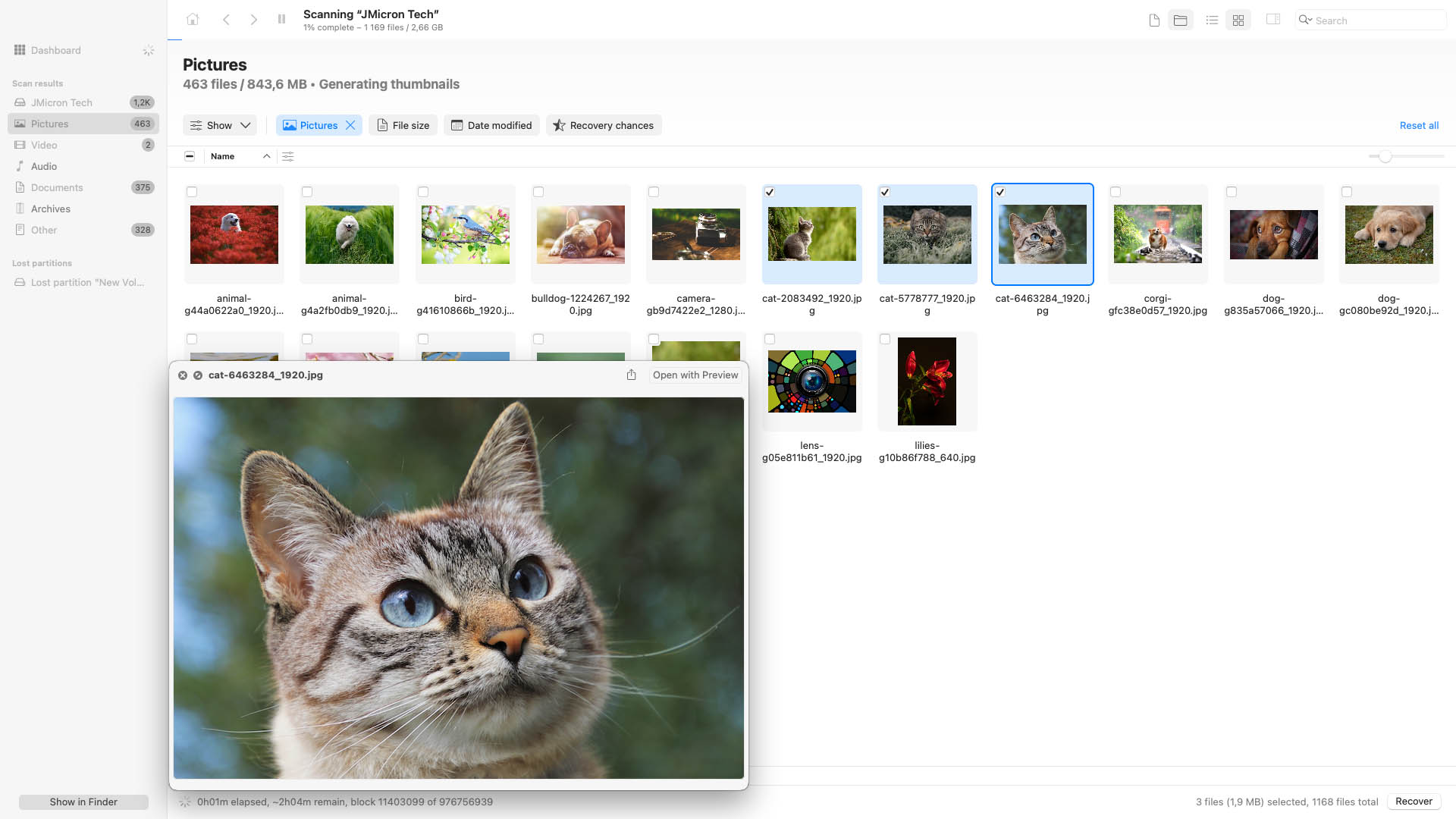
Disk Drill is a versatile data recovery tool that is available for both Mac and Windows computers. It can be used to restore lost files from almost any internal or external hard drives, SD cards, USB drives, cameras, etc. Also, it’s compatible with most file systems (HFS, HFS+, FAT32, NTFS, and others), supports over 400 file formats, and can recover deleted folders.
It’s possible to say that this application is even better than Recuva since it offers a few handy extra features. It not only does an excellent job in restoring deleted or lost files but also can be used to prevent potential data loss and create byte-to-byte backups of your drive.
Disk Drill has both a free and a paid version available. Most of the features can be used with the free version, but there is a limit: you can recover data of up to 500 MB on Windows.
Pros
- User-friendly interface
- Quick and deep scan options
- File preview feature
- Creates DMG backups
- S.M.A.R.T. Monitoring
- No option of viewing the file’s condition
- Can’t scan a single specific folder
Price: $89 – $499
Supported Operating Systems: Mac (macOS 10.5 and newer), Windows (Windows Server 2003-2022, Windows XP, Windows Vista, Windows 7, 8, 8.1, 10, 11).
Verdict: best versatile data recovery tool.
2. DMDE
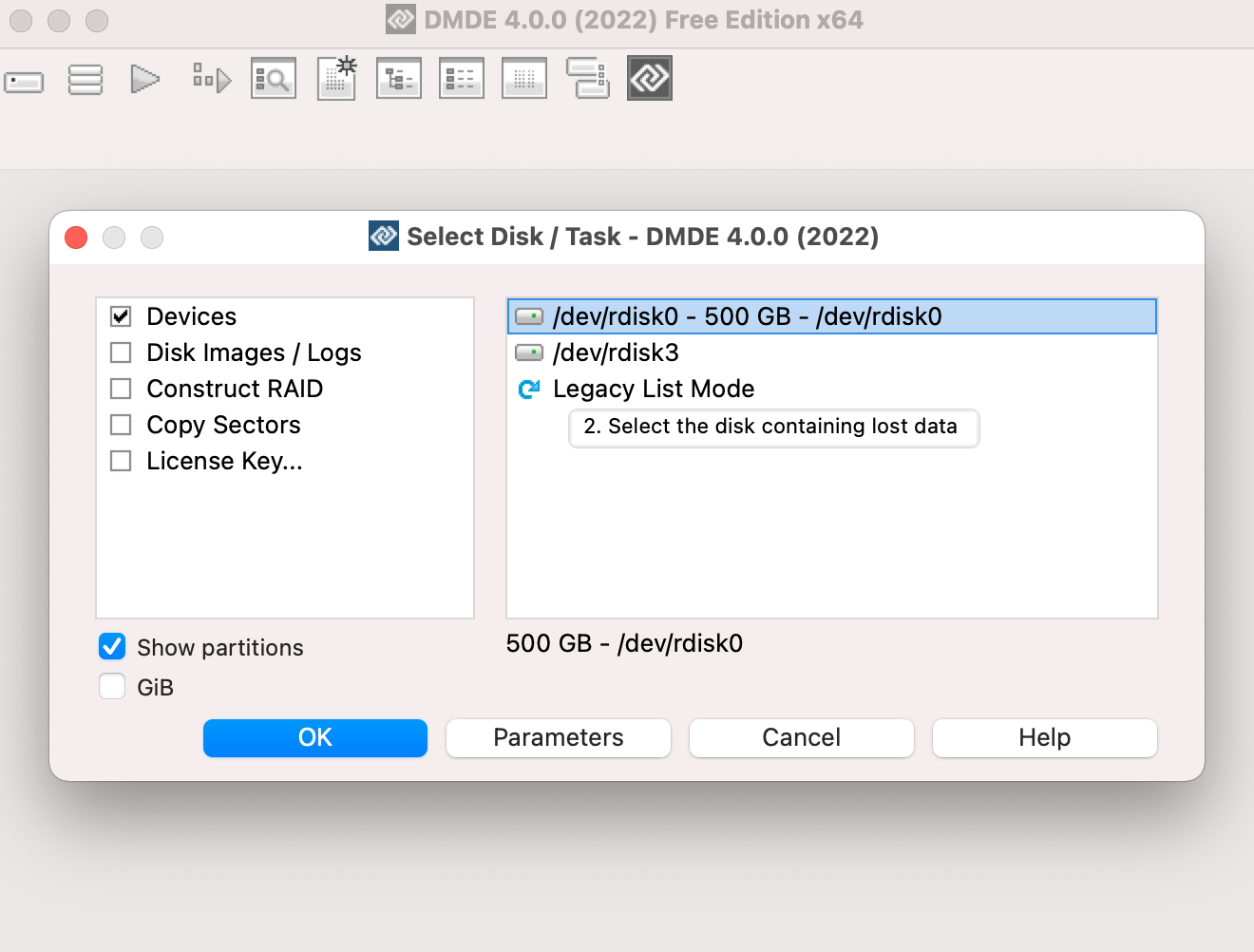
DM Disk Editor and Data Recovery Software (DMDE) is an effective solution for searching and restoring lost files on your drives. However, the app’s interface is not as user-friendly as one might hope. So if you’re not well-versed in using your Mac or similar apps, it can be difficult for you to navigate this tool.
This application doesn’t limit itself just to data recovery. It has a few handy features that let you undelete partitions, create disk backup images, and can reconstruct RAID. Moreover, DMDE supports most of the file systems (NTFS, APFS, FAT32, HFS+, and more).
DMDE comes in free and paid editions. The free version allows you to try out all of the features, but it does have some limitations.
Pros
- Supports most file systems
- RAW recovery
- Can undelete partitions
- Reconstructs directory structure
- Clones drives for backups
- Difficult to navigate
- Poor technical support
Price: $20 – $95
Supported Operating Systems: Mac (macOS 10.12 and newer), Windows (98/ME, 2K/XP, Vista/7/higher), Linux
Verdict: best for RAID reconstruction.
3. R-Studio
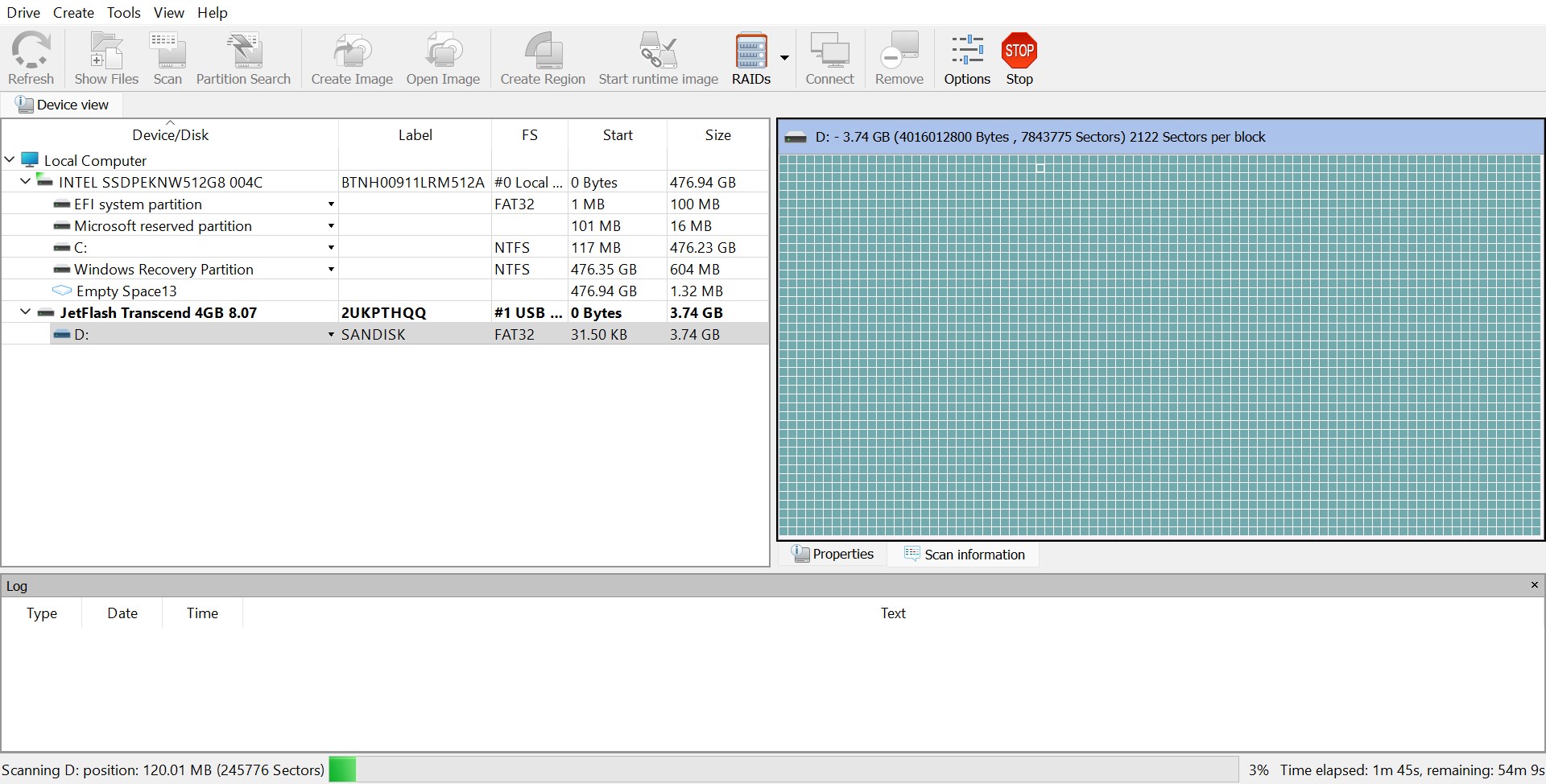
R-Studio is an affordable but highly-regarded technician’s tool with powerful data recovery capabilities. It provides extensive file system support and works with HFS+, APFS, ExFAT, FAT32, NTFS, and even EXT4 partitions (and more) – this is quite impressive even for paid apps. It also supports a wide range of file signatures across documents, photos, videos, audio files, etc.
On top of above-average compatibility, this app performs really well in different data loss scenarios, such as corruption, deletion, and formatting. It actually has some of the best recovery performance scores we’ve seen, in terms of quality and quantity of recovered data. R-Studio also provides many advanced tools, like the ability to highly customize recovery scans and reconstruct RAID arrays.
R-Studio’s only major flaw is that it’s very confusing for beginners. For example, instead of starting the process immediately, clicking the Scan button opens a new window for custom parameters. And once the scan is complete, users have to choose which source to browse at a time. Other modern recovery apps make the process far more streamlined, only requiring a few clicks from start to finish.
Overall, R-Studio is a powerful alternative to Recuva and it’s great for resolving complex data loss problems and restoring various data types from a wide range of file systems and devices, but it may be a bit too technical for beginner users.
Pros
- Highly customized scans
- Advanced RAID recovery
- Supports all mainstream file systems
- Good recovery performance
- Supports a good number of file signatures, including RAW
- Good quality to price ratio
- Works for older Mac models and macOS versions
- Cluttered and unfriendly interface can be confusing to beginners
- Rough user experience – R-Studio is much less streamlined than other apps
- The preview tool doesn’t work for a lot of file types
- The presentation of found files is highly unintuitive
Price: $79.99
Supported Operating Systems: OS X Leopard 10.5 ~ macOS Ventura 13 (works with macOS Sonoma even if not officially mentioned on their website)
Verdict: Best data recovery tool for power users and complex data loss scenarios.
4. TestDisk/PhotoRec
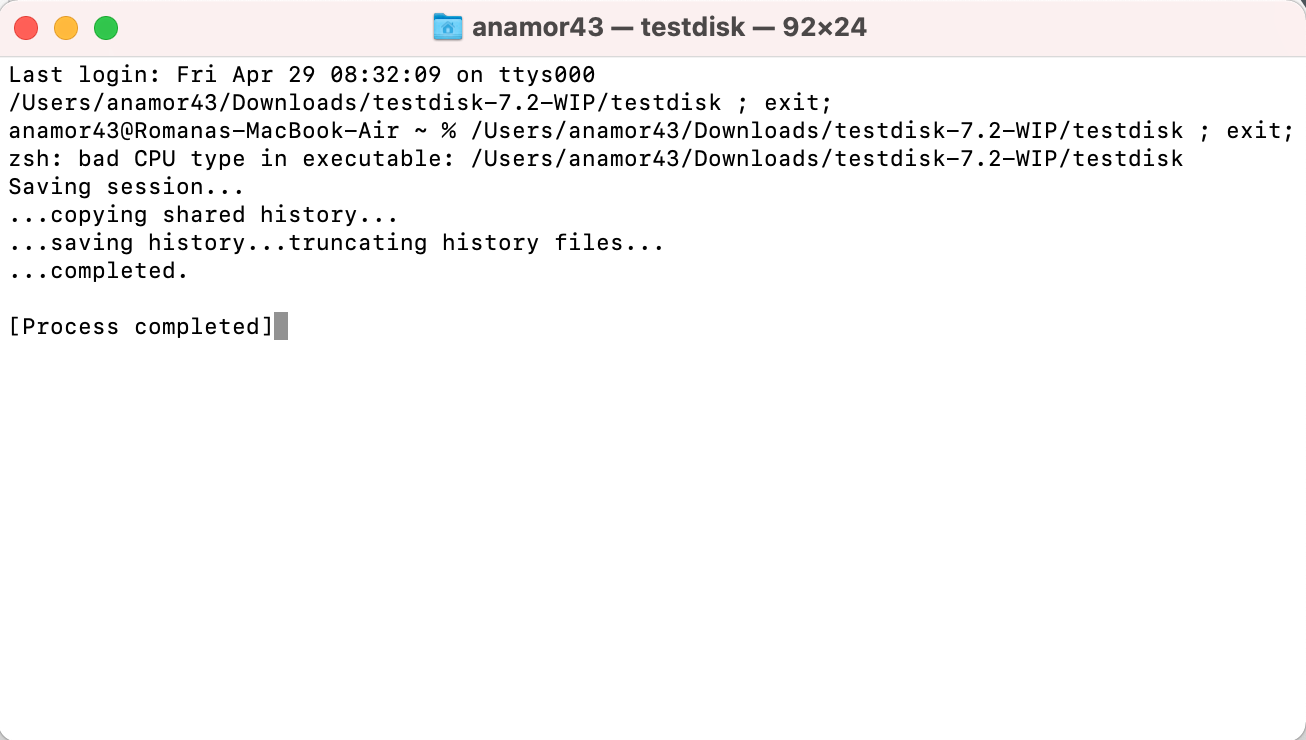
TestDisk is a free and open-source data recovery tool that comes in a single package with PhotoRec. The main difference between the two applications is that TestDisk specializes in restoring lost or deleted disk partitions and repairing bootable disks, while PhotoRec is designed mainly for restoring specific individual files.
They both are command-line applications, which makes it a bit complicated for an inexperienced user to navigate. But overall, it’s very easy to recover data with TestDisk as long as you’re comfortable with having to use commands to use the tool.
PhotoRec can be used to restore over 480 different file types (Microsoft Word documents, Text files, archives, JPEG, QuickTime movies, etc.) and can work with various storage devices.
The biggest advantage of this utility program is that it supports most of the popular file systems: FAT16/32, exFAT, NTFS, HFS+, ext2/ext3/ext4, and more. Also, it works with various data storage devices, such as hard drives, SD cards, USB flash drives, etc.
Pros
- Supports a wide range of file extensions
- Restores data even in complex data loss scenarios
- Compatible with internal storage devices
- Can recover files from reformatted drives
- Outdated user interface
- No extra bells and whistles
Price: free
Supported Operating Systems: macOS,
DOS/Windows 9x, Windows 10/8.1/8/7/Vista/XP, Windows Server 2016/2012/2008/2003, Linux, BSD, Sun Solaris
Verdict: best for tech-savvy users who wish to go for a completely free option.
5. Stellar Data Recovery
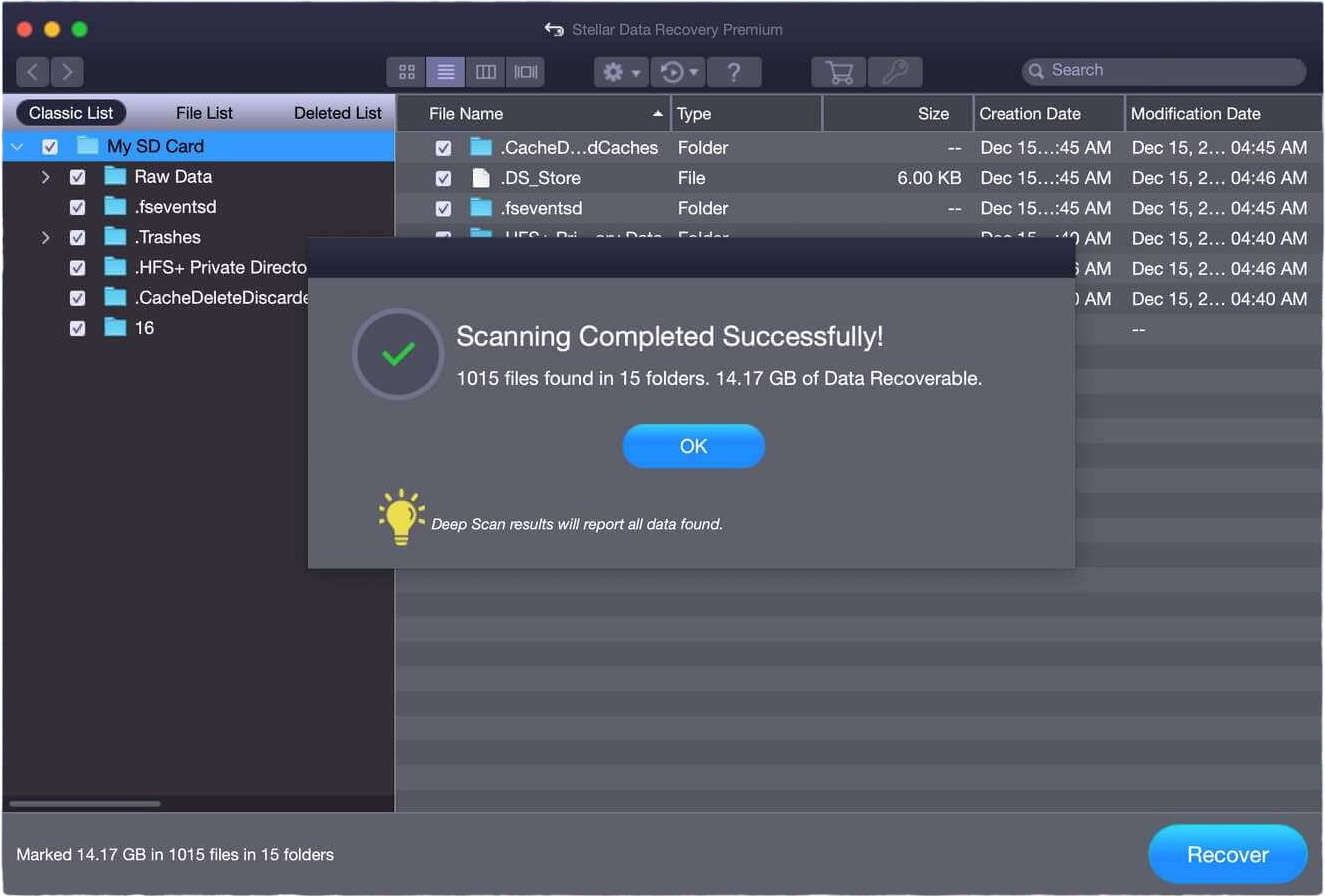
Stellar Data Recovery is another highly familiar name on this list. Its beginner-friendly interface and user experience, decent recovery performance, and affordable price tag make it a popular choice for beginner users.
It supports most major file systems, including APFS, HFS/HFS+, FAT32, ExFAT, and NTFS. This makes the app a good choice for scanning both system drives and external storage devices. It also recognizes most common file signatures across documents, videos, and photos (including some RAW signatures), as well as custom signatures. The app has a decent number of quality-of-life features too, and it provides photo and video repair tools that actually work (but they’re only available for more expensive subscriptions).
Stellar Data Recovery’s biggest flaw is its value for money over time. While some of its competitors are more expensive outright, they are often better deals in the long run because users will only have to pay once for superior performance forever (this statement only refers to apps that offer lifetime licenses, like Stellar Data Recovery).
However, its price at face value is very reasonable for its decent performance – other apps charge more for worse results. On top of that, Stellar Data Recovery, Inc. is known for providing awesome customer support.
Pros
- 1 GB free data recovery
- Great customer support
- User-friendly interface and good user experience
- Useful additional features like custom signatures.
- Consistently decent recovery performance for documents, videos, and RAW photos
- Photo and video repair tools (only available for higher-tiered subscriptions)
- Recognizes fewer signatures than many of its competitors (custom signatures help but can be tedious)
- Crashes sometimes
- Although it can scan and recover corrupted disks, it doesn’t warn users of bad sectors
- Price is affordable outright, but the app offers less value for money over time compared to its competitors
Price: $59.99 ~ $79.99
Supported Operating Systems: Catalina 10.12 ~ macOS Sonoma 14
Verdict: Best tool for beginners on a budget.
6. EaseUS
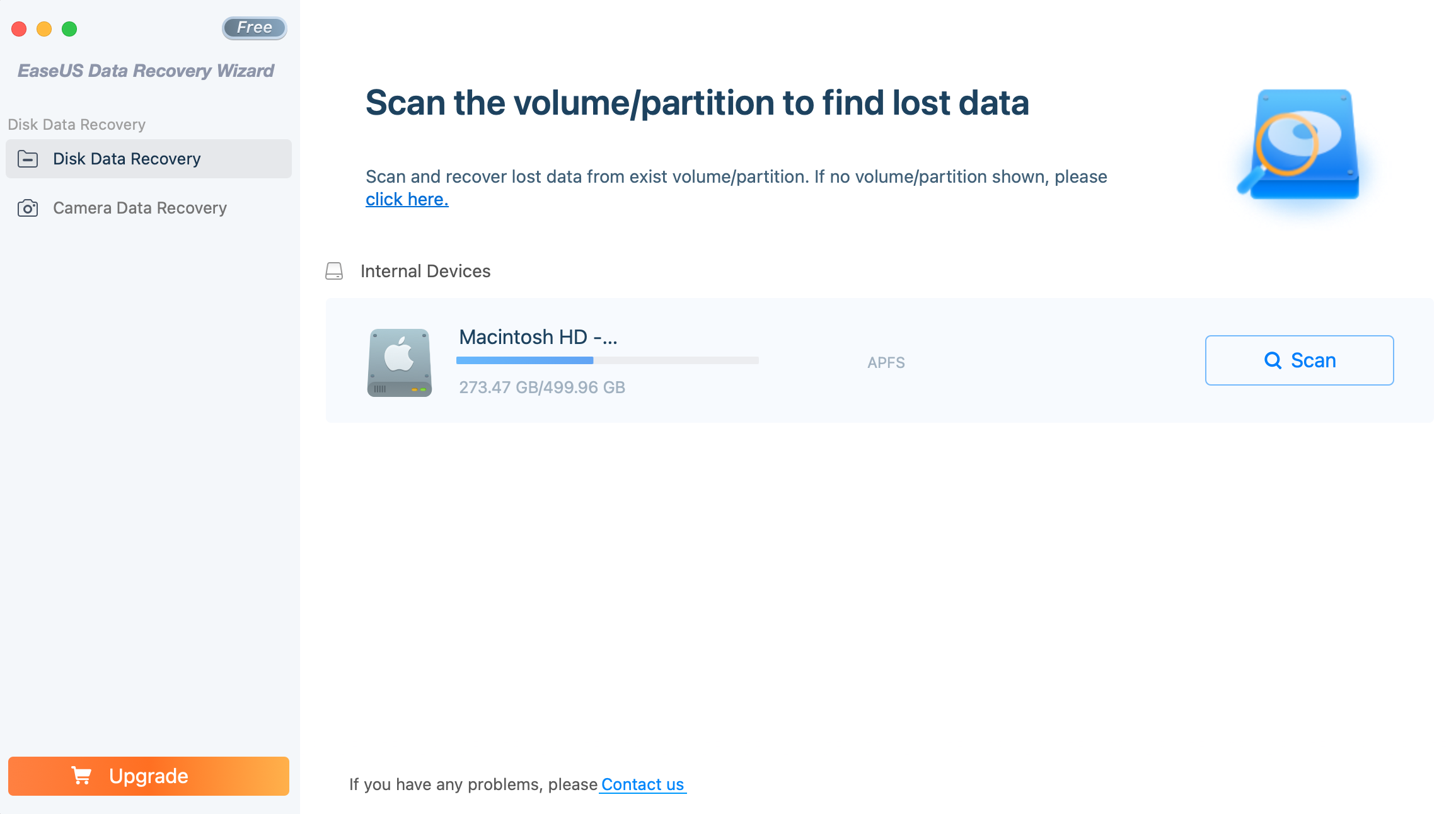
EaseUS Data Recovery Wizard for Mac is a utility program created by a company called EaseUS which became popular thanks to their partition manager app.
This tool can be used to restore data from Time Machine backup drives, SD cards, digital cameras, SSDs, hard drives, etc. Also, it supports over 200 file types and can effectively recover documents, images, videos, music, emails, and archives.
This file recovery application comes in both a free version and a paid one. The trial version allows you to recover up to 2 GB of lost data. This is a nice perk since it allows you to try out the app and see if it’s the one that you need before purchasing it.
Pros
- Portable version
- Supports most popular file systems
- TRIM disabling feature
- Easy to navigate
- Retrieve files from formatted disks
- No S.M.A.R.T. diagnostics
- Mid-tier recovery speed
Price: $89.95
Supported Operating Systems: Mac (macOS 10.9 and newer), Windows (Windows 11/10/8/7, Windows Server 2003, 2008, 2012, 2016, 2019, 2022).
Verdict: best overall file recovery tool.
7. DiskWarrior
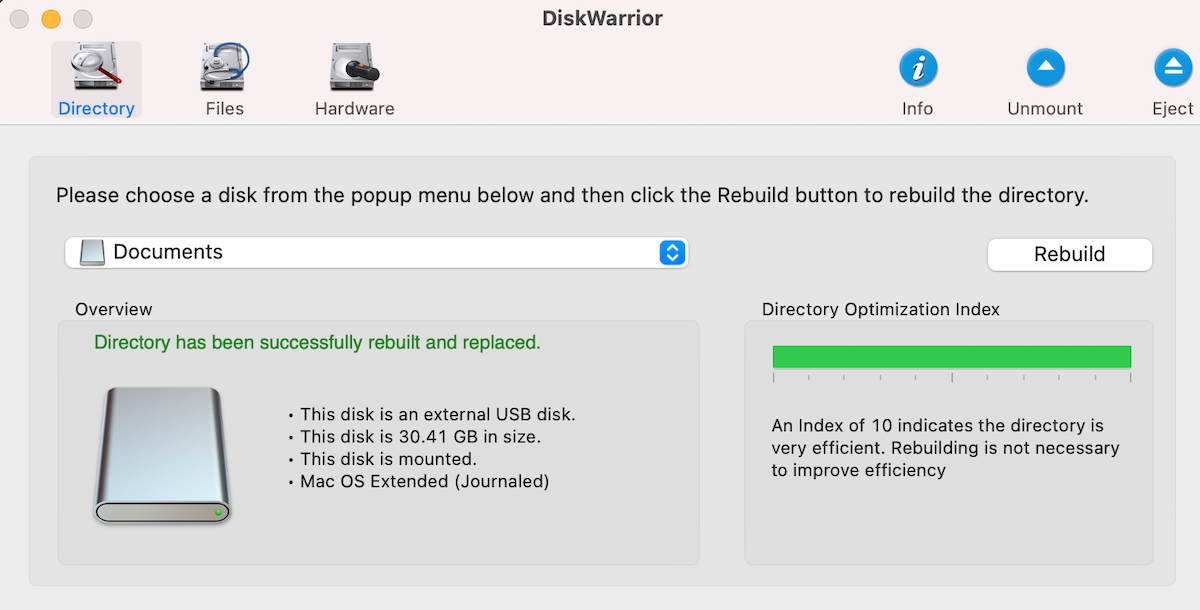
DiskWarrior is one of the oldest data recovery tools on the market. It can be used only with HFS or HFS+ formatted drives and is perfect for repairing failing hard drives and preventing potential drive malfunction. Also, it can rebuild directories and fix corrupt files.
However, its recovery features are quite limited. It can only recover missing data in cases when the file disappeared because of hard drive issues. So if you want to bring back a file or folder which you deleted mistakenly by yourself, this utility program won’t be of much assistance.
This application does not have a free version. So the only way to test DiskWarrior out is to actually purchase a license.
Pros
- Easy-to-use
- Fixes damaged directories
- Repairs corrupt files
- Portable
- S.M.A.R.T. diagnostics
- Doesn’t support APFS drives
- Won’t work with M1 Macs
- No updates since 2018
Price: $119.95
Supported Operating Systems: Mac (macOS 10.5 – 11)
Verdict: best for repairing failing hard drives and rebuilding disk directories.



